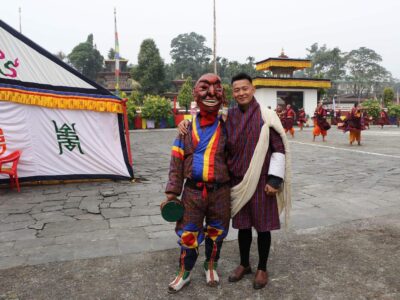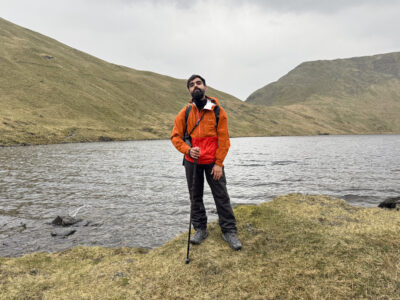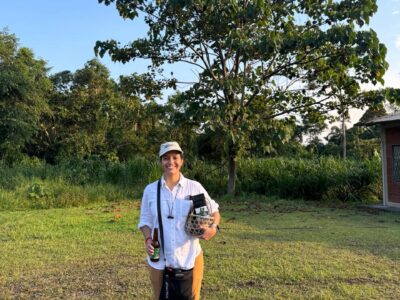By Christina Paton
Evelyn Reis is a current student in the MPA in Environmental Science and Policy program (MPA-ESP) and is returning to school after almost 30 years at the NYC Department of Sanitation.
Evelyn holds both a JD and MBA in Executive Management from St. John’s University as well as a bachelor’s degree in History from New York University.
MPA-ESP alum Christina Paton interviewed Evelyn to learn more about her decision to return to school to pursue her lifelong passion for conservation and wildlife management.

Why were you interested in attending the MPA-ESP program?
After 29 years at the New York Department of Sanitation, I was approaching retirement and wanted to use that as an opportunity to pursue an intellectual challenge by returning to school. Originally, I was looking at the certificate program in conservation biology. However, during my research on the certificate program I came across the MPA in Environmental Science and Policy program, which I found to be more aligned with my future goals.
Could you tell us a little more about your career path in the NYC Department of Sanitation?
I first joined the Department of Sanitation in 1989 as the executive assistant to the assistant commissioner for Operations Planning, Evaluation and Controls (OPEC). OPEC was responsible for analyzing the Department’s operations and developing and implementing the Department’s recycling and waste reduction program. After that, I worked in a variety of positions in waste disposal and collection operations and my responsibilities ranged from managing the procurement of goods and services to the budget of the Bureau of Waste Disposal to policy analysis, development, and implementation. Eventually, my boss became the first deputy commissioner of the department and I was appointed to the position of special counsel to the first deputy commissioner. In this position, I continued to undertake policy analysis for the department, analyze the impact of legislation on the department’s operations, and perform special assignments.

How did your passion for conservation evolve?
I began volunteering at the Bronx Zoo in 2000. I educated visitors about animals, their habitats, and the environment as well as the need to protect biodiversity. I also gave tours to the public and elected officials during my 14 years at the zoo.
I am particularly interested in gorillas and began attending the International Gorilla Workshop in 2004. The workshop is held every two years at zoos around the world and teaches participants about innovative gorilla husbandry and research on wild gorilla populations. One of my favorite workshops was the 2012 conference which was held at Apenheul, a primate park in the Netherlands that houses three of the four great apes and many other primates.
In addition, I served as a member of the Board of Advisors and the director of social media for the Dewar Wildlife Trust, a nonprofit that formerly operated an AZA certified facility that housed gorillas. The facility was donated in 2015 to Project Chimps to house chimpanzees that have been retired from medical research.

What do you think is the greatest challenge facing sustainability professionals today?
I think being pragmatic is extremely important yet challenging. In this field, the issues we face have numerous effects and trade-offs that need to be considered. One example are the trade-offs associated with green energy. The technology is constantly improving, but there are negative consequences from the construction of green energy facilities that are not well analyzed or considered. For example, the relocation of endangered species is necessitated by the construction of arrays of solar panels. Another area of concern is hybrid and electric cars which contain batteries that are toxic and must be disposed of in hazardous waste landfills.
This is true from a social aspect as well. Too often policy is implemented from the top down without integrating the input of the people affected by the policy or considering a community’s economic, social, and cultural needs. Take the suggestion of requiring all New York City households to separate organic waste from their refuse. The ideal method for storing food waste is to freeze it. Low-income residents need their freezer space to store bulk bought or sale items, not to store food waste. This idea of reaching a balance between all system inputs and outputs is probably the greatest challenge for current policy-makers.
What has been your favorite aspect of the program so far?
The cohort is wonderful. We have a tremendously diverse group of people and everyone has been constantly learning from one another.
Follow the Master of Public Administration in Environmental Science and Policy on social media: Facebook, Instagram, Twitter.
Christina Paton is an alum of the MPA-ESP Class of 2018 and current research assistant for the Earth Institute. Christina has a background in environmental science with a concentration on applied Geographic Information Systems (GIS).



